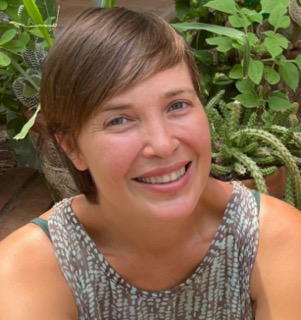Holidays can bring a lot: food, laughter, and the endless interrogation about life and parenting decisions. And for unschooling and self-directed education (SDE) families, this inevitably includes questions like, “Wait, so your kids don’t go to school? How does that even work? Aren’t you messing up their future?”
If you’ve been on this path for a while, you know how repetitive these conversations can be. Someone inevitably asks, “How will they learn math?” or “What about socialization?” Others go straight to judgment: “I could never let my kids have that much freedom. It sounds like chaos.”
And here’s the thing — these conversations aren’t just tiring. They can feel personal, like an unspoken critique of your parenting, your values, and even your kids.
But if there’s one thing I’ve learned, it’s that these moments aren’t just about explaining unschooling. They’re about holding onto your vision of a life centered on trust, connection, and respect for young people’s agency.
The Greatest Hits of Holiday Interrogation
Whether it’s the first time someone is learning about unschooling or they’re recycling a familiar critique, the questions we face tend to fall into a few categories:
Curiosity:
“So... what exactly do they do all day?”
These are the easier conversations — people are genuinely curious but often don’t know where to start.
Skepticism:
“But how will they learn math? Or socialize? Or get into college?”
Skepticism assumes something’s missing — that you’re gambling with your child’s future.
Judgment:
“I don’t see how that’s responsible. Don’t kids need structure?”
This is where it starts to feel like a debate, often with a side of “back in my day” nostalgia.
What’s Really Behind the Criticism?
It’s tempting to take these questions personally and at face value, but they often reflect something deeper. Most people have spent their lives within the conventional education system — it’s how they’ve learned to understand structure, success, and responsibility. When you choose a different path, it can feel like you’re not just challenging the system but their values.
Stepping away from traditional systems can feel like a radical act. It forces people to question what they’ve taken for granted: who holds the power in learning, whose voice matters, and what it means to truly trust kids. For many, that reflection is uncomfortable.
One parent in our Radical Learning community described it perfectly: “When I told my family we were unschooling, the first thing they said was, ‘You’re setting them up to fail.’ It took me a while to realize their reaction wasn’t about my kids at all — it was about their own fears and assumptions about what education has to look like.”
When you make choices outside the norm, it disrupts the unspoken rules of how people think things should be. It challenges their deeply held beliefs about control, success, and safety. That discomfort often shows up as skepticism or judgment. But underneath it is fear — fear of the unknown, fear of failure, and fear of what happens when we let go of control.
Supporting Youth Agency — and Explaining It
At the heart of unschooling and SDE is something radical: a belief in youth agency. The idea that kids are capable of making meaningful choices about their own lives and learning.
This idea can be hard for others to grasp. When people hear “agency,” they assume it means chaos — kids doing whatever they want without guidance. But youth agency isn’t about abandoning responsibility; it’s about redefining it.
It’s about stepping into partnership with young people. Instead of control, you choose connection. Instead of coercion, you offer trust.
When someone asks, “But how do they learn without being told what to do?” we can say something like:
“We believe kids learn best when they feel respected and supported. It’s not about ‘letting them do whatever they want’ — it’s about creating space for them to take ownership of their learning.”
Unschooling isn’t about rejecting structure — it’s about creating a structure that works for your family, one rooted in mutual respect and trust.
Navigating the Tough Conversations
When the questions come, it’s easy to feel defensive. But these moments can also be opportunities — to practice your values, to connect, to advocate for your young people and to protect your peace. Here’s how:
Lead with Curiosity
If someone is genuinely asking, meet them where they are.
Try:
“That’s a great question — what do you think education is really for?”
Turning the question back to them can lead to deeper conversations instead of defensiveness.
Keep It Simple
For common questions, have a short, confident answer ready.
Example:
“How will they learn math?”
“When math matters to them — like budgeting for something they want to buy or solving a real-world problem — they’ll figure it out. That’s how we all learn best.”
Know When to Let It Go
Not every conversation needs an explanation. If someone is stuck in judgment, it’s okay to bow out.
Try:
“I understand this might sound unconventional. It’s working well for us, and I’d love to talk about something else.”
Stay Grounded in Your Why
These conversations can feel heavy, so it helps to reconnect with your “why” beforehand. Why did you choose this path? What do you value most about it? Holding that close can help you respond with confidence instead of frustration.
Find the Humor
Sometimes, humor is your best friend.
For example:
“But what about socialization?”
“Don’t worry — they’re plenty social. In fact, we’ve considered starting a debate club just to prepare for this question.”
What Really Matters
These conversations aren’t just about schooling — they’re about what kind of relationships we want to have with our kids.
Unschooling and SDE are about recognizing that kids are whole, capable humans with the right to have a say in their own lives. When we step away from the conventional system, we’re not rejecting education — we’re rejecting coercion and control. We’re choosing trust, connection, and a belief in our kids’ ability to navigate their own paths.
Transformation is messy because it challenges what’s comfortable. But in that messiness, we create space for something deeper — for connection, agency, and trust to thrive.
What now?
If you find yourself fielding questions, remember: it’s okay to laugh, to deflect, or to step away. It’s okay to let your choices speak for themselves.
You don’t need to prove anything to anyone. What matters is that you’re showing up for your kids, creating a space where they feel seen, respected, and supported.
Because at the end of the day, the best response to doubt isn’t explanation — it’s living the life you believe in, unapologetically.
If you enjoyed this article and feel called to give back to ASDE, here are ways you can support our work:
- Donate money
- Share our content with others! Click one of the buttons above to easily share on Twitter, Facebook, or email.
- Consider becoming a Contributor for Tipping Points
Tipping Points Magazine amplifies the diverse voices within the Self-Directed Education movement. The views expressed in our content belong solely to the author(s). The Alliance for Self-Directed Education disclaims responsibility for any interpretation or application of the information provided. Engage in dialogue by reaching out to the author(s) directly.






